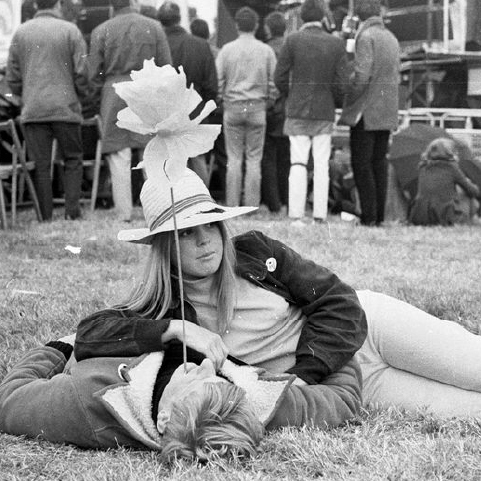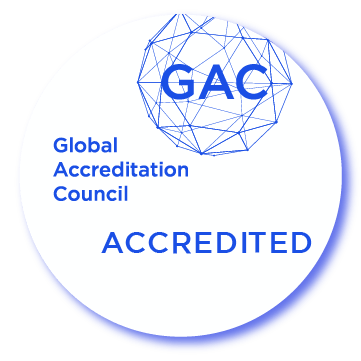
Course Description:
In a world that is becoming more violent every year, is there anything more important than finding ways of conflict that are less destructive yet still allow us to stand for our most heart-felt values? Can we win without destroying our cultures, national infrastructures or the global environment? At the same time increasing conflicts define our world (climate change, mass migration, limited supply of potable water, growing income disparities, and more), we are at risk of jeopardizing the sustainability of our planet and must find productive ways to engage and let our voices be heard. This course is designed to give the student a thorough understanding of the idea of nonviolent conflict; including its history, the theories supporting its use, the debates taking place between activists and scholars, the actual dynamics that make nonviolent action effective, and an overview of how it is being used in various contexts around the world today.
SPECIAL NOTE: There are videos included in this course and it is constructed in a way that an independent learner can navigate it and understand the teachings within. However, if you are in need of faculty-led sessions, we will record those and insert them the next time this course is scheduled to run in Live Virtual Classroom.
Learning Outcomes:
By the end of this course you should be able to:
- outline the primary people and documents that provide the theoretical and historical context for using nonviolent conflict, critique the soundness of arguments against using nonviolent methods, counter the ways people and groups misrepresent civil resistance, and correct the many misconceptions people hold about using nonviolent action;
- debate Sharp’s theory of social power, evaluate the critiques against it, and state your own informed opinion as to its use now and into the future;
- differentiate, analyze, and explain the current debates between activists and scholars of nonviolent conflict, integrate that knowledge with the theories and dynamics framing nonviolent action, and evaluate the effectiveness of current and past efforts;
- explain the primary categories of Sharp’s 198 tactics of civil resistance, critique the dynamic known as “backfire,” and differentiate between it, Gregg’s idea of moral jiu-jitsu, and Sharp’s concept of political jiu-jitsu; and,
- integrate the theories and dynamics of nonviolent conflict with knowledge of how 21st century media and technology affect a campaign’s strategy, and evaluate the effectiveness and potential of their use on current and future nonviolent efforts.
Faculty:
Robert A. Kezer, PhD holds BA degrees in religious studies and international studies from the University of Oregon, a Master’s degree in integral theory from John F. Kennedy University in San Francisco, a PhD in transformative studies with a concentration in integral theory from the California Institute of Integral Studies also in San Francisco, and a CELTA certificate from Cambridge University for teaching English as a second language. Dr. Kezer is the author of the novel, “The Boétie Legacy and a World in Peril,” and the lay-person’s guide to nonviolent conflict: “People Power, Civil Resistance, and Social Transformation: An Introduction to Nonviolent Conflict” both in text and as a video course.
Course Modalities:
Non-Credit Options
Lite Level – This course is delivered on-demand with no faculty interaction and is perfect for lifelong learners who want to go at their own pace and who are not interested in academic credit but still want to experience the course.
Audit-No Credit – If you would like to participate when this course is offered in our Live Virtual Classroom mode, you may attend the live faculty webinars but will not be required to submit assignments for credit.
If you take a few courses and decide you want to officially enroll in a degree program, you can gain academic credit for Lite versions or Audit-No Credit versions by paying the difference between these course fees and a normal academic fee, successfully completing quizzes, submitting your reflection journals, and delivering a Final Creative Assignment that will be graded.
For-Credit Options
Live Virtual Classroom: Study that takes place within Ubiquity University, in which Ubiquity academic coursework is accomplished through attendance in Live Webinars, with faculty and student interaction being a part of the Live Webinar content. To receive academic credit, you must not miss more than 3 live sessions, you must complete the quizzes and submit any other required assignments (if any), and a final creative assignment for grading at the degree level you are enrolled in.
Internal Online Independent Study: Study that takes place within Ubiquity University, in which Ubiquity academic online coursework is engaged in independently on one’s own and does not include faculty interaction. To receive academic credit, you must complete the quizzes and submit your reflection journals and final creative assignment for grading at the degree level you are enrolled in.
The rules guiding our assignment collection and grading process can be found here: Ubiquity University Grading Policy
Pricing:
- BA Level: $300
- MA Level: $600
- PhD Level: $900
- Audit-No Credit: $240 (only if offered in Live Virtual Classroom Mode)
- Lite: $50 (no credit, access to course materials only)
Our shopping cart is simple and easy to understand. If you do not have a user account, you will be able to create one upon purchase. Save your username and password as you will need it to login to access course materials later. For more detailed, step-by-step instructions you can review our tutorial How to Purchase a Course. Again, if you experience any issues, please email Veronica Saldias at registrar@ubiquityuniversity.org.
We allow students at all academic levels to participate in our online courses. However, those students who are enrolled in MA or PhD programs are expected to offer a more sophisticated analysis on reflection tasks, writing assignments, and in the final creative assignment. You will be graded commensurate with your degree level. Except for the Final Creative Assignment, word counts are offered as guidelines. If you need to exceed the word counts to submit an MA or PhD level response, you may feel free to do so as long as the word count expansion is reasonable and necessary.
Course Contact Information:
Live Virtual Classroom macrocourses are delivered by faculty in live Zoom sessions. You will have a course facilitator who is available to answer questions and offer additional assistance and that information will be provided to you upon registration. Please do not email faculty directly with any technology or registration issues.
For on-demand lite or Internal Online Independent Study versions, click the “Chat” button down on the left-hand side of the screen for any technical issues or questions you may have about the content.


